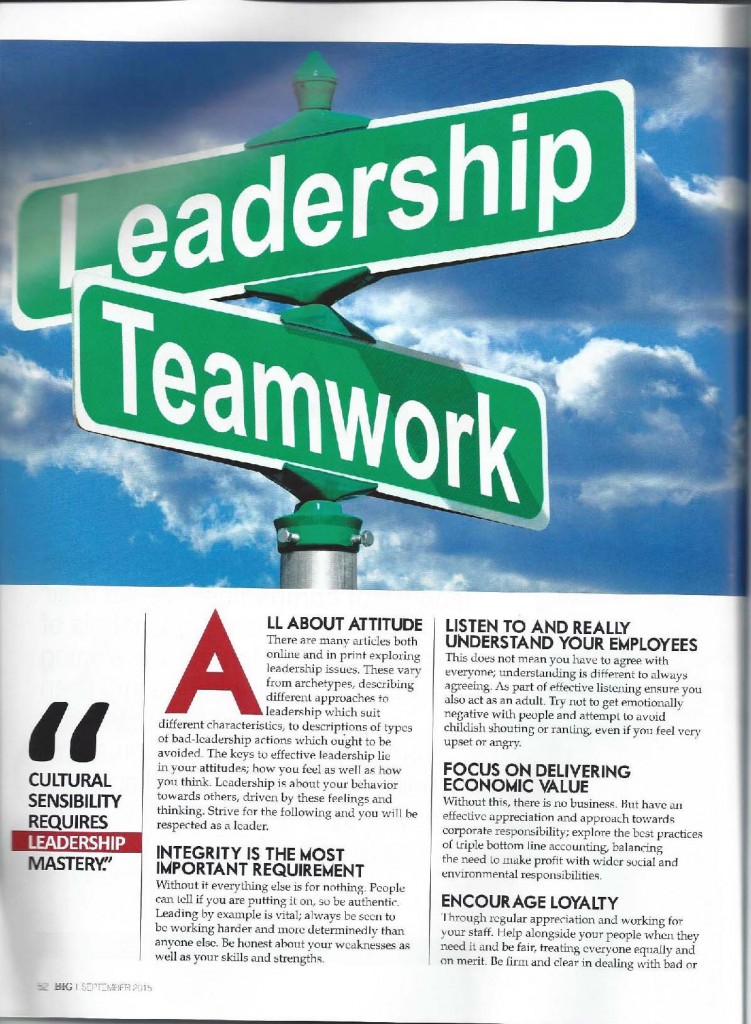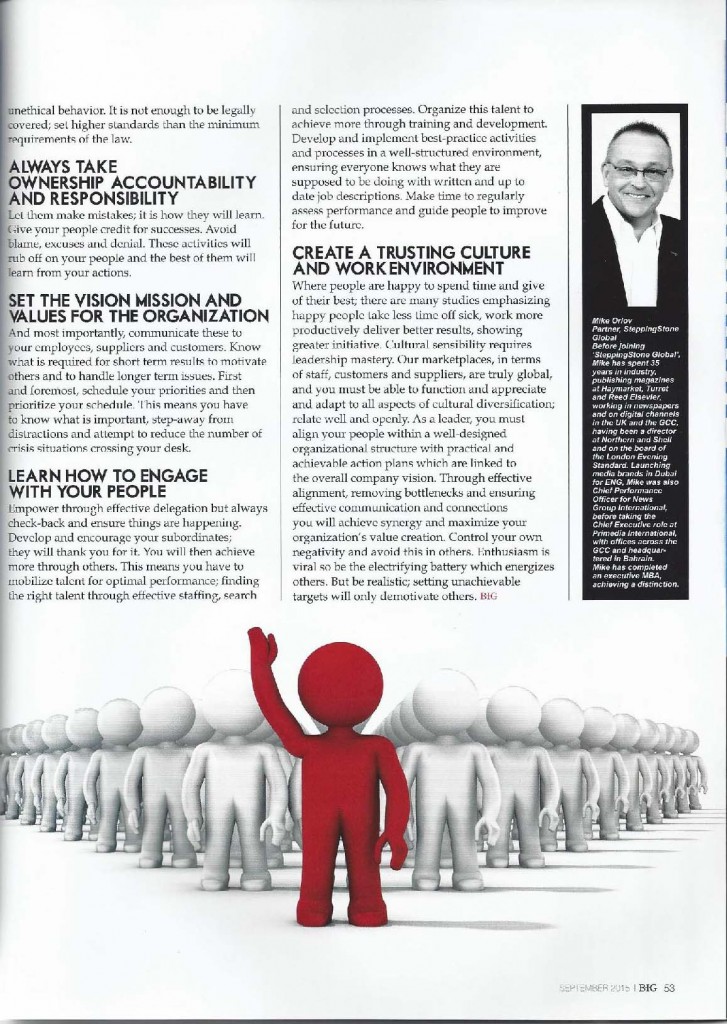Our work focuses on helping leaders of companies. We aid their long range planning, analysis of issues and challenges, developing effective interventions and then implementing and executing change and transformation plans, delivering alignment and creating synergy. We are often asked for tips to remind people about best leadership practices.
There are many articles both online and in print exploring leadership issues. These vary from archetypes, describing different approaches to leadership which suit different characteristics, to descriptions of types of bad-leadership actions which ought to be avoided. The keys to effective leadership lie in your attitudes; how you feel as well as how you think. Leadership is about your behaviour towards others, driven by these feelings and thinking. Strive for the following and you will be respected as a leader.
Integrity is the most important requirement; without it everything else is for nothing. People can tell if you are putting it on, so be authentic. Leading by example is vital; always be seen to be working harder and more determinedly than anyone else. Be honest about your weaknesses as well as your skills and strengths.
Listen to and really understand your employees. This does not mean you have to agree with everyone; understanding is different to always agreeing. As part of effective listening ensure you also act as an adult. Try not to get emotionally negative with people and attempt to avoid childish shouting or ranting, even if you feel very upset or angry.
Focus on delivering economic value; without this, there is no business. But have an effective appreciation and approach towards corporate responsibility; explore the best practices of triple bottom line accounting, balancing the need to make profit with wider social and environmental responsibilities.
Encourage loyalty through regular appreciation and working for your staff. Help alongside your people when they need it and be fair, treating everyone equally and on merit. Be firm and clear in dealing with bad or unethical behaviour. It is not enough to be legally covered; set higher standards than the minimum requirements of the law.
Always take ownership, accountability and responsibility for your people. Let them make mistakes; it is how they will learn. Give your people credit for successes. Avoid blame, excuses and denial. These activities will rub off on your people and the best of them will learn from your actions.
Set the vision, mission and values for the organization and most importantly, communicate these to your employees, suppliers and customers. Know what is required for short term results to motivate others and to handle longer term issues. First and foremost, schedule your priorities and then prioritize your schedule. This means you have to know what is important, step-away from distractions and attempt to reduce the number of crisis situations crossing your desk.
Nobody can do everything so learn how to engage with your people, empower through effective delegation but always check-back and ensure things are happening. Develop and encourage your subordinates; they will thank you for it. You will then achieve more through others.
This means you have to mobilize talent for optimal performance; finding the right talent through effective staffing, search and selection processes. Organise this talent to achieve more through training and development. Develop and implement best-practice activities and processes in a well-structured environment, ensuring everyone knows what they are supposed to be doing with written and up to date job descriptions. Make time to regularly assess performance and guide people to improve for the future.
Create a trusting culture and work-environment where people are happy to spend time and give of their best; there are many studies emphasising happy people take less time off sick, work more productively deliver better results, showing greater initiative. Cultural sensibility requires leadership mastery. Our marketplaces, in terms of staff, customers and suppliers, are truly global, and you must be able to function and appreciate and adapt to all aspects of cultural diversification; relate well and openly.
As a leader, you must align your people within a well-designed organizational structure with practical and achievable action plans which are linked to the overall company vision. Through effective alignment, removing bottlenecks and ensuring effective communication and connections you will achieve synergy and maximize your organization’s value creation.
Control your own negativity and avoid this in others. Enthusiasm is viral so be the electrifying battery which energizes others. But be realistic; setting unachievable targets will only demotivate others.
The world is more transparent and connected than it has ever been and we face ever greater challenges and uncertainty. Your actions are scrutinized as never before. You need to control your health so sleep well, eat and drink sensibly, be alert but not anxious, reserve thinking-time in your diary and spend time with someone you like each day; this will pay off handsomely. Keep learning; there is always something more to explore.


